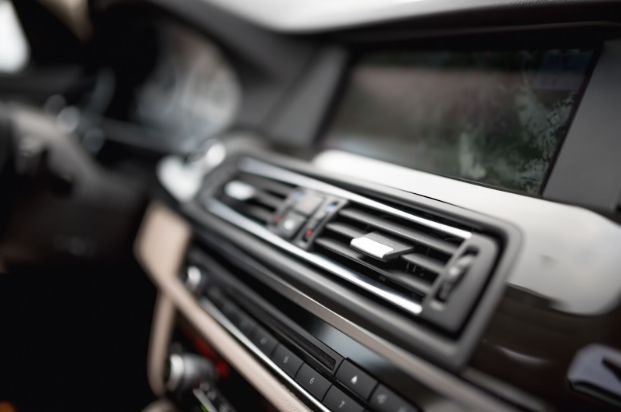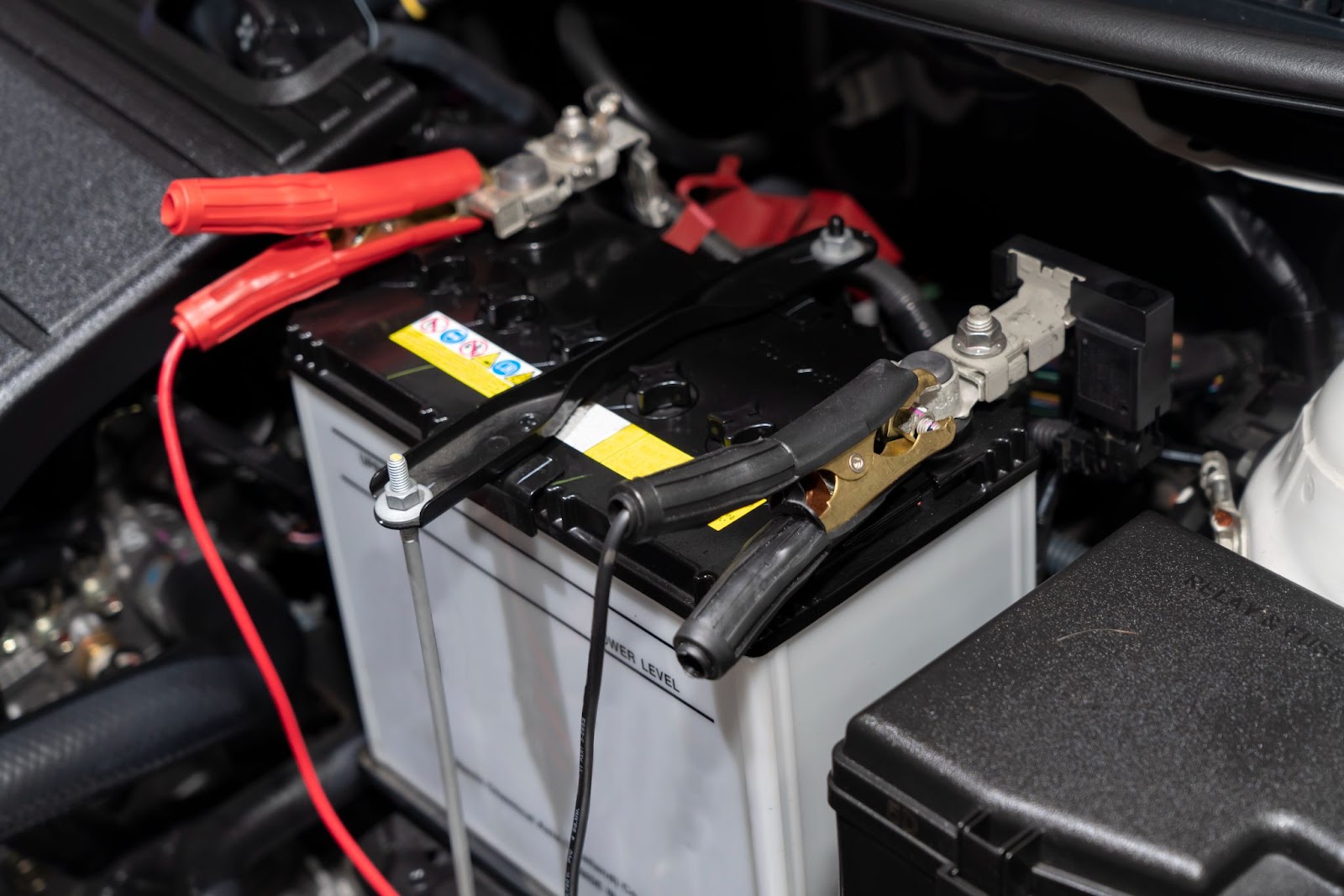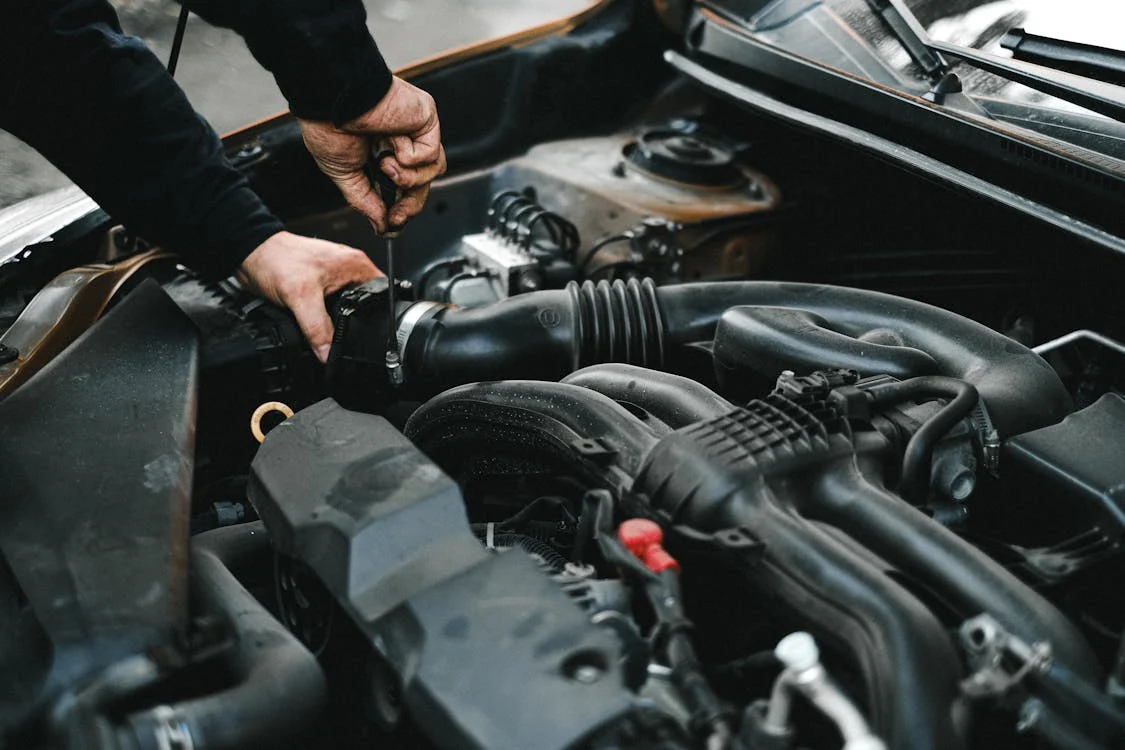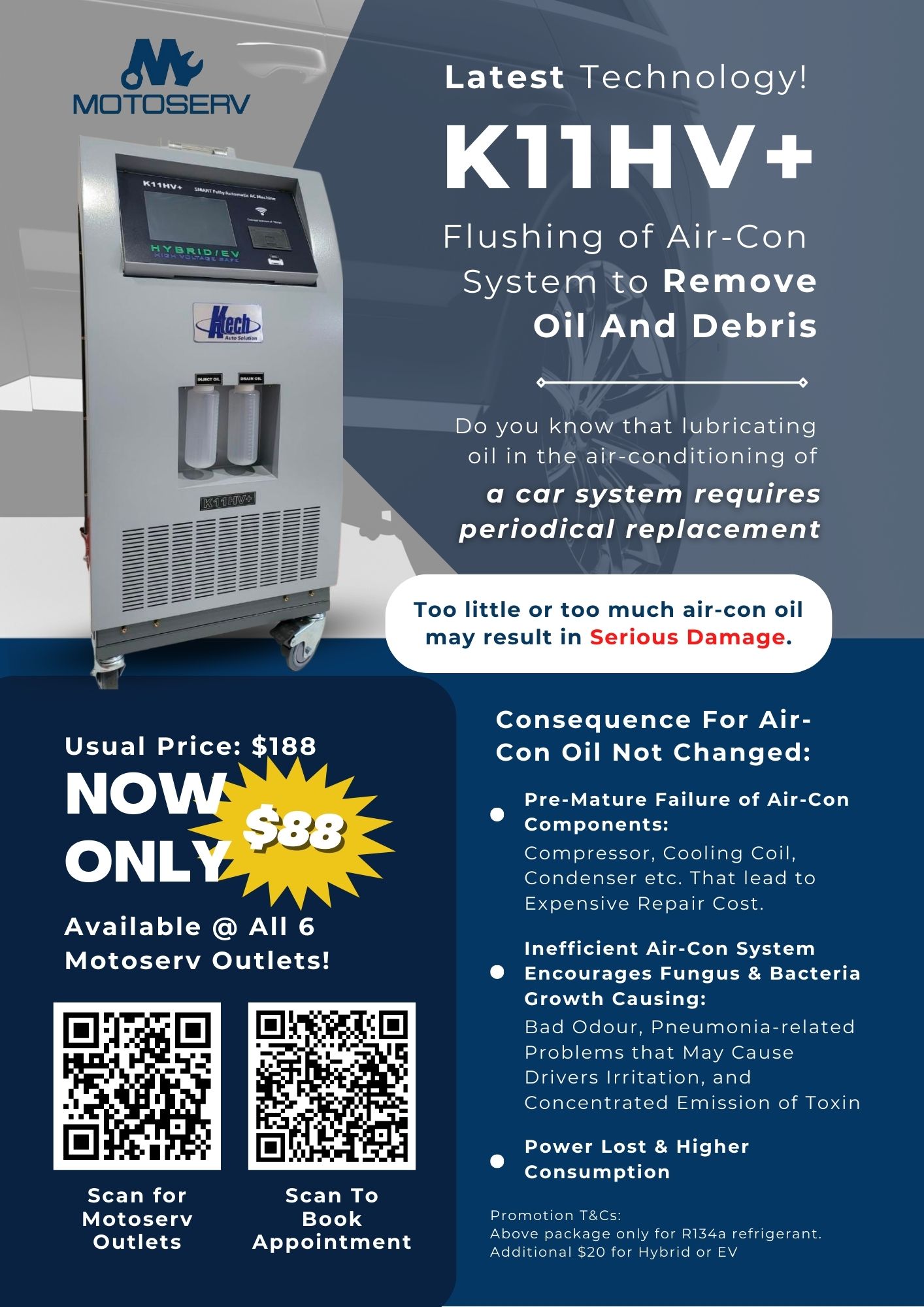If you’ve been wondering why your car is blowing hot air, it usually means there is a fault in the air conditioning system. If left unresolved, the issue can become more costly to repair and make driving uncomfortable. Let’s take a look at the possible main causes, the symptoms linked to each cause, and what to avoid.
For accurate diagnosis and safe repairs, please visit one of Motoserv’s branches in Singapore. Reach out via WhatsApp for any enquiries.
How the Car Air Conditioning System Works
Before we move on to the common causes and symptoms of warm air, it helps to understand the main parts of your car’s air conditioning system and how they work together.
A car’s air conditioning system removes heat from the air before it enters the cabin. It works in a closed loop, with each component playing a role in the cooling process:
- Compressor – Pumps and pressurises the refrigerant, starting the cooling cycle.
- Condenser – Releases heat from the refrigerant to the outside air.
- Expansion valve or orifice tube – Controls the flow of refrigerant into the evaporator.
- Evaporator – Absorbs heat from the cabin air and cools it.
- Blower fan – Pushes cooled air into the cabin through the vents.
If any of these parts fail, the system can’t complete the cooling cycle, and you’ll get warm air instead of cold. Some cars, especially base models or specific system designs, may not have all of these components or may use alternative parts to achieve the same function.
This is why it helps to get familiar with your own car’s AC parts and setup, so you can better understand any issues that arise.
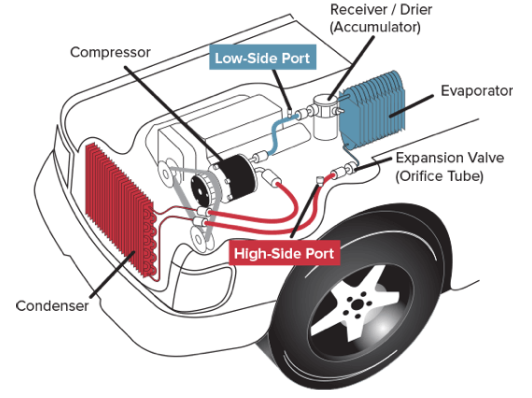
Why Your Car’s Aircon Blows Hot Air: Causes and Symptoms
When a problem arises with one of the parts, it can affect the whole AC system. Occasionally, issues outside the AC system may also impact cooling, but these are less common.
By matching the symptoms you notice to possible faults, you can narrow down what’s wrong.
- Low or Leaking Refrigerant
Symptoms: Gradual loss of cooling, hissing sounds, oily residue near AC hoses.
Reason: The AC relies on refrigerant to absorb heat. If it leaks, cooling power drops.
- Faulty Compressor
Symptoms: No cool air at all, clicking or grinding noises when AC is on.
Reason: The compressor moves refrigerant through the system. If it fails, cooling stops entirely.
- Clogged or Dirty Condenser
Symptoms: AC blows warmer air when stationary but cools better when driving.
Reason: Dirt or debris block airflow, preventing heat from being released.
- Blocked Expansion Valve or Orifice Tube
Symptoms: Weak cooling, fluctuating air temperatures.
Reason: These control refrigerant flow. If blocked, cooling becomes inconsistent.
- Faulty AC Pressure Switch
Symptoms: AC fails to turn on, especially after long use.
Reason: The pressure switch stops the compressor if system pressure is too high or too low.
- Damaged Evaporator Coil
Symptoms: Poor cooling, occasional sweet or chemical smell from vents.
Reason: Damage or leaks in the evaporator reduce cooling and can release refrigerant.
- Blend Door Actuator Failure
Symptoms: AC blows warm air even when set to cold, or temperature changes unpredictably.
Reason: A stuck blend door mixes warm and cool air inside the cabin.
- Electrical Problems
Symptoms: AC works on and off, no fan speed control, or blown fuses.
Reason: Faulty wiring, switches, or fuses can interrupt power to AC components.
- Other Mechanical Failures
Symptoms: AC light on but no airflow, belt squealing, or fans not spinning.
Reason: Broken belts, failed blower motor, or damaged valves can stop the system working.
- Overheated Engine
Symptoms: AC loses cooling when the engine gets too hot.
Reason: Excess heat in the cooling system affects AC performance.
For accurate diagnosis and safe repairs, please visit one of Motoserv’s branches in Singapore.

(Source: Envato)
Don’t Do These Things If Your Car Aircon Is Blowing Hot Air
Before meeting your car aircon service provider, it’s important to avoid certain actions that could worsen the problem or cause additional damage to the system.
- Don’t ignore unusual smells or noises. These are warning signs that need professional attention.
- Don’t refill refrigerant without checking for leaks. Adding refrigerant to a leaking system only masks the issue and can cause further damage.
- Don’t run the AC with a slipping or broken drive belt. This can cause compressor damage and engine issues.
- Don’t attempt to open or tamper with AC refrigerant lines. Handling refrigerants without proper certification is dangerous and illegal in many places.
- Don’t keep running the AC if it’s blowing hot air for prolonged periods. This can strain the system and lead to costly repairs.
- Don’t overlook warning lights or dashboard indicators related to the AC system. They often signal underlying faults that need professional diagnostics.
- Don’t use homemade or unapproved AC additives. These can clog the system and cause damage.
- Don’t ignore regular AC maintenance schedules. Skipping routine checks can lead to bigger problems down the line.
- Don’t bend or damage condenser fins. They’re delicate and essential for heat exchange.
- Don’t spray high-pressure water into AC components. This can force water into sensitive parts and cause electrical faults.
Conclusion
When your car’s AC isn’t working properly, it’s usually due to several common reasons. Understanding these causes can ease your worries and guide your next steps, but most aircon problems require professional attention for safe and lasting repairs. It’s best to have your car inspected by professionals to prevent further issues.
For accurate diagnosis and safe repairs, please visit one of Motoserv’s branches in Singapore. Reach out via WhatsApp for any enquiries.

